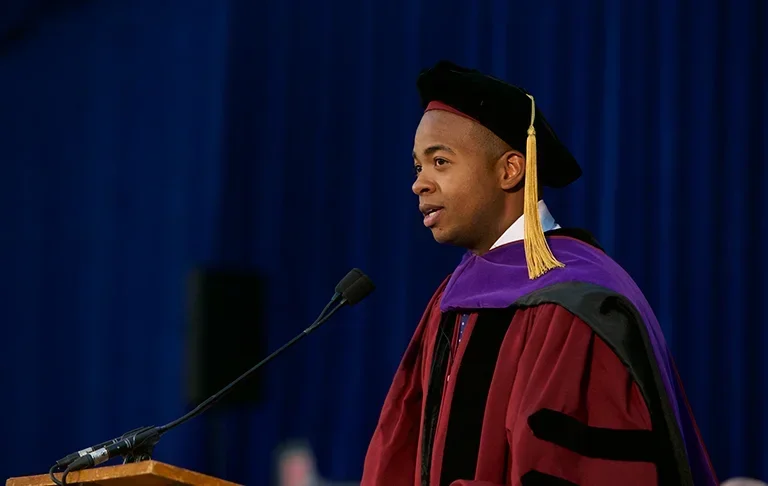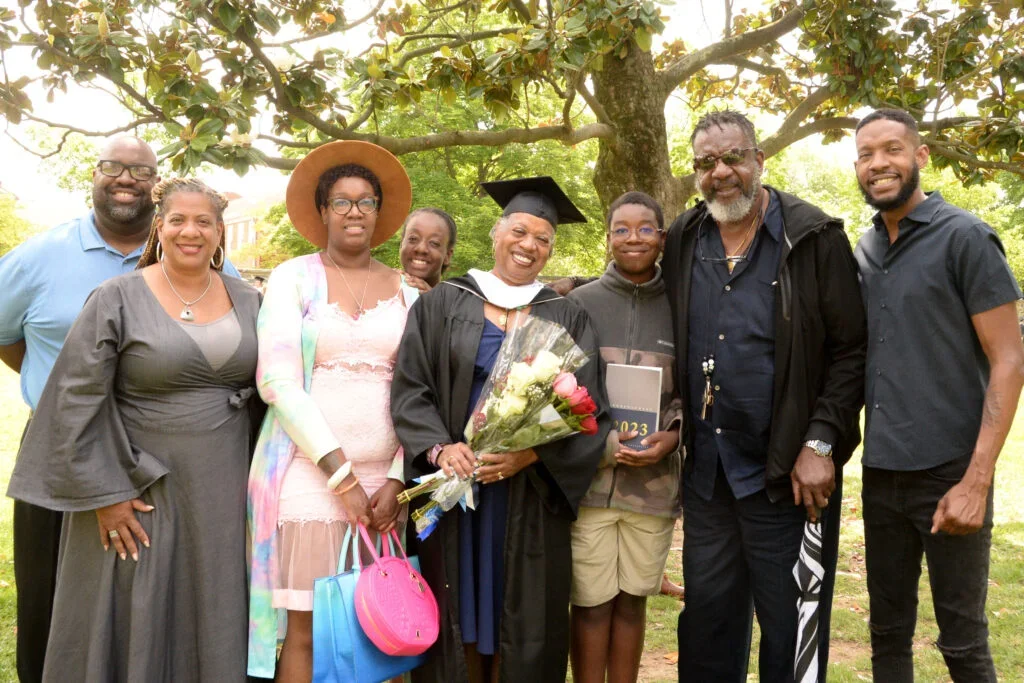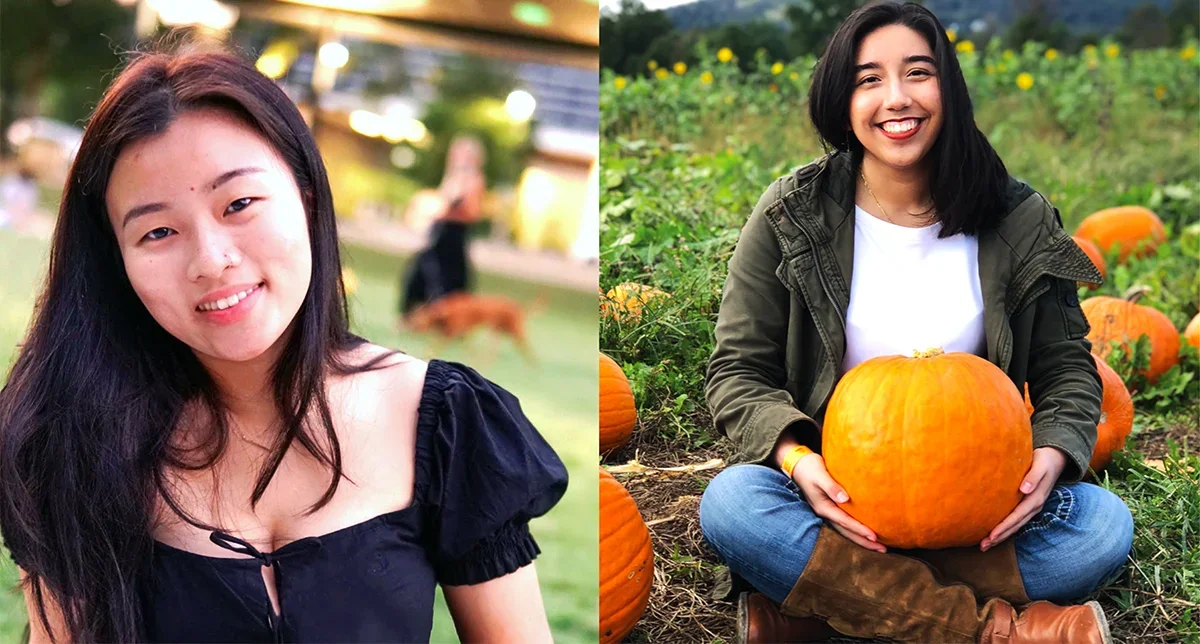Alumni News
Our alumni are active individuals pursuing a wide range of interests. If you are a graduate of the Department of Sociology and would like to be featured, please send your entry to Hanadi Salih. We look forward to hearing from you!
Alumni News Stories
More Alumni NewsAlumni, News
3 Georgetown Alumni Selected for 2023 White House Fellowship
William Godwin (C’07) is a Georgetown College of Arts & Sciences alumnus, founder of a real estate company, attorney and the former president of the Gary City Council.
September 29, 2023
Alumni, News
Karen Franklin (C’23) Graduates 45 Years After Leaving the Hilltop
On May 20, 2023, 45 years after she last left Georgetown, Franklin walked across the stage in front of Healy Hall and became an official alumna of the Georgetown University College of Arts & Sciences.
May 20, 2023
Alumni, News
Yu Huang, Martínez Sánchez Selected for 2021 Chester Gillis Award
Each year, the College Academic Council (CAC) recognizes two students who embody the values of a liberal arts education in the Jesuit tradition through the Chester Gillis Award. This year, Heather Yu Huang (C’23) and Jennifer Martínez Sánchez (C’22) were selected from a pool of 95 applicants for this honor.
March 12, 2021


